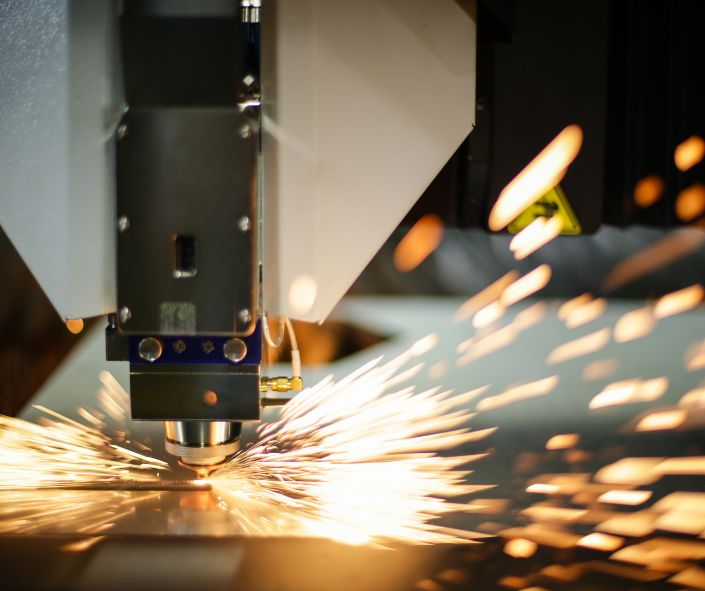Computer Numerical Control (CNC) A type of machine machining, has revolutionized engineering and manufacturing over the past few years. CNC machining is a method which combines digital technology with traditional machining to produce high-precision parts in a variety of industries. This article focuses on the mechanics, benefits and varied applications of CNC machine to show its transformative impact on the modern engineering.
The Mechanics of CNC Machining
CNC machine, also known as subtractive manufacturing is a process that removes material to form an ideal shape from an unfinished piece of metal. The process is controlled by computer software that is pre-programmed to control the speed of the machine. The code created by CNC machines is dependent on the type of machine used as well as the complexity of the item. However, the underlying principle is the same: High-speed cutters precisely cut away any material that is left to create the finished product.

The accuracy of CNC manufacturing is among its greatest advantages. Digitalization allows for highly precise and reliable production. This minimizes human error and guarantees an even distribution of batches. This level of precision is crucial in industries where even the tiny deviations could have huge impacts, such as medical devices, aerospace and automotive manufacturing.
The Role of Digitalised Computers in CNC Machine Operations
Digital technology is at the center of CNC manufacturing’s accuracy and efficiency. Specialized software automates all manufacturing processes. This software converts computer-aided design (CAD) models into a series of precise instructions, which the CNC machine then follows to create the part. These instructions dictate everything from the speed and direction of the tool used to cut, as well as the angle and depth of each cut.
In large-scale industrial plants computers are often connected directly to CNC machines. This permits seamless communication and controls. This integration enables real-time monitoring that ensures maximum performance while also reducing the time between maintenance. CNC is a machine that can be automated to allow for continuous operations, increasing efficiency and reducing lead times.
The Advantages of CNC Machining
CNC machining is an excellent method of manufacturing. One of the most significant advantages is its ability to make complex and intricate components with a high degree of precision. The precision of CNC machines eliminates the need to make manual adjustments or rework, reducing waste and increasing efficiency. CNC machines also work constantly and are ideally suited for large production runs.
CNC processing is also adaptable. The same machine is able to make a variety of components by simply changing the programming. CNC machines are adaptable, making it appropriate for prototyping as much being a mass production. This allows manufacturers to rapidly respond to changes in market demand.
The process of automating CNC machining also improves safety at work. In reducing the requirement for manual intervention, the possibility of injuries and accidents are decreased. CNC-machined equipment is additionally more reliable and work better, thereby increasing satisfaction of customers.
Industries benefiting from CNC Machining Services
In a variety of industries CNC machining has been proven to be highly efficient highly precise and versatile. In aerospace, CNC machines produce critical components that must be in compliance with strict quality and safety standards. CNC is utilized in the medical device industry to make sophisticated surgical instruments and implants. The accuracy of the machine is of prime importance.
CNC machining is used for the creation of engine components, transmissions, intricate interior and exterior elements, and even intricate exterior and interior designs in the automobile industry. Similarly, the electronics industry gets benefit from CNC machine’s capability to create tiny, intricate parts for consumer electronics as well as communication devices. Jewelry and art industries use CNC technology to make intricate designs and bespoke pieces.
The Future of CNC Machining
CNC capabilities in machining are predicted to increase with the advancement of technology. Technologies like multi-axis machining and additive manufacturing integration and advanced material will push the limits of what can be achieved with CNC technology. Furthermore, the constant development of artificial intelligence as well as machine learning will likely enhance the precision and efficiency of CNC machine processes.
CNC machining is a powerful tool that has impacted manufacturing and engineering in the present. It has unbeatable quality, flexibility and effectiveness. The ability to produce extremely precise and complex components can make CNC machining an indispensable instrument in a wide range of industries. CNC machining, as technology evolves will remain an essential component of manufacturing’s future.